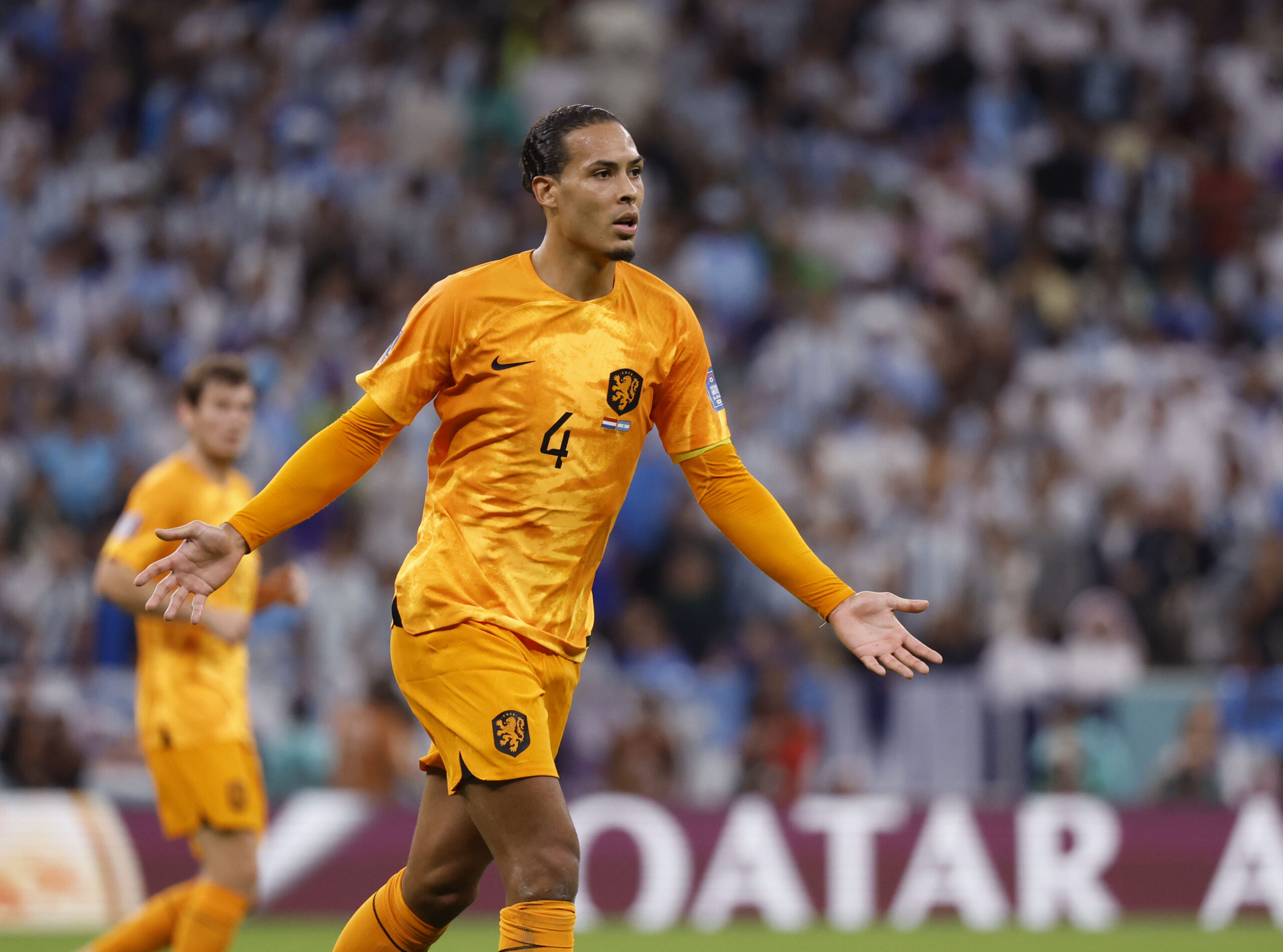There was a time when OneLove — the attempt at a catch-all campaign to fight discrimination in soccer — was seen by many as being too vague and fluffy a message to carry weight.
With its name taken from the beloved Bob Marley song and its mix of six colors that weren’t those of the classic Gilbert Baker rainbow flag, but were usually referred to as ‘rainbow’ anyway, the initiative came across as “Pride lite.”

Even that proved too much for FIFA. LGBTQ fans and allies were split on its effectiveness yet that became a moot point when world football’s governing body banned the armbands on the eve of the Qatar World Cup.
Get off the sidelines and into the game
Our weekly newsletter is packed with everything from locker room chatter to pressing LGBTQ sports issues.
Thereafter, OneLove took on something of a new guise as a symbol of defiance.
Three years on from its creation in Holland, the campaign has now suffered what could be a knockout blow, in the men’s game at least.
You could call it a one-two combo. First, the federation that helped to launch it — the Dutch KNVB — took the occasion of an event on National Coming Out Day to announce the wearing of the OneLove armband would now be optional for clubs and captains.
Previously, designated match rounds in the Eredivisie — the Dutch top-flight — had seen agreements that all skippers would sport the striped heart design on their sleeves to show “pride of heritage, race, gender identity and orientation,” as the official wording put it.
That show of unity splintered last October when then Feyenoord player Orkun Kökçü, a Turkey international, and Excelsior’s Redouan El Yaakoubi, who is of Moroccan descent, both declined to wear the armband. The latter also refused to pose with other players behind a campaign banner later in the season.

This week’s second punch was delivered by the Netherlands national team captain Virgil van Dijk, who confirmed in a press conference that he and his fellow players had reached a group decision not to use the OneLove armband in Friday night’s European Championship qualifier at home against France.
Put together, these developments all but sound the end for a cause that came with the best intentions but was never wholly embraced.
The women’s game has gotten behind it, however. Once the group of European federations that had vowed to back OneLove in Qatar had backed off it under the threat of FIFA sanctions, the campaign was given ongoing visibility by several high-profile women at international and club matches.

That support may prove to be its lifeline, but for now its advocates in Holland are reeling.
Thijs Smeenk from the John Blankenstein Foundation, named after the former FIFA referee who was gay and out in men’s football in the 1980s and 1990s, described the KNVB’s softening of the anti-discrimination slogan as “painful.”
Speaking on Dutch radio, he added: “I was quite positive until one or two years ago, but I think there is now a decline. There is much more aggression and resistance from society.”
Meanwhile, COC Netherlands — the country’s oldest LGBTQ organization — released a statement titled ‘Deeply Sad,’ which asked for the KNVB to immediately restore OneLove to its former status.
Joining that call was Roze Kameraden, Feyenoord’s LGBTQ supporters group, of which COC chair Astrid Oosenbrug is also a member. She said the KNVB had made “an incomprehensible decision, which at least gives the appearance that the federation has yielded to its opponents”.
Later on Thursday, Van Dijk was asked by a reporter which armband he would wear when captaining the Netherlands in their Euro 2024 qualifying group game against France in Amsterdam.
“The [UEFA] Respect captain’s armband,” he replied. When quizzed why that had been selected over OneLove, Van Dijk said it was a group decision among the playing squad.
“We are one team. We make the same choice and I am the one who wears the armband. We as a group have decided to wear ‘Respect’.”
Dutch boss Ronald Koeman, who sat alongside Van Dijk at the press conference, said he had no objections to the players’ decision.

Van Dijk, who is also club captain of Liverpool in the English Premier League, came in for criticism from some quarters during last year’s World Cup for not standing up to FIFA’s OneLove ban.
He said at the time that he could not risk getting a yellow card or worse (the potential punishment that a player might incur for wearing the armband in Qatar was unclear) and denied lacking “backbone”.
When the Women’s World Cup was held in Australia and New Zealand in July and August, FIFA again ruled out the use of OneLove but did incorporate its color-striped heart into a ‘Unite for Inclusion’ armband.

In some men’s and women’s matches in UEFA competitions in recent years, captains have worn the familiar Pride rainbow colors on their armbands. These are due to be used again by Premier League captains when the annual activation of the Rainbow Laces campaign takes place across sports in the U.K. in November and December.
As for OneLove, it remains to be seen how the KNVB will seek to use the symbol and slogan going forward in its own inclusion and anti-discrimination work, which has an umbrella title of ‘Our football belongs to everyone’.
For Dutch clubs, the federation’s anti-discrimination chief Houssin Bezzai is reported to have told the audience at Wednesday’s symposium event that he is “curious” to see what they do with the campaign, having now been informed they can swerve it if they want to.
Whether what’s left proves enough to sustain the message or whether players captaining national associations and clubs based outside of the Netherlands help to keep it alive by wearing the armbands remains to be seen.
But with interest rapidly cooling in its homeland, there can be little doubt that OneLove is on the rocks.








































